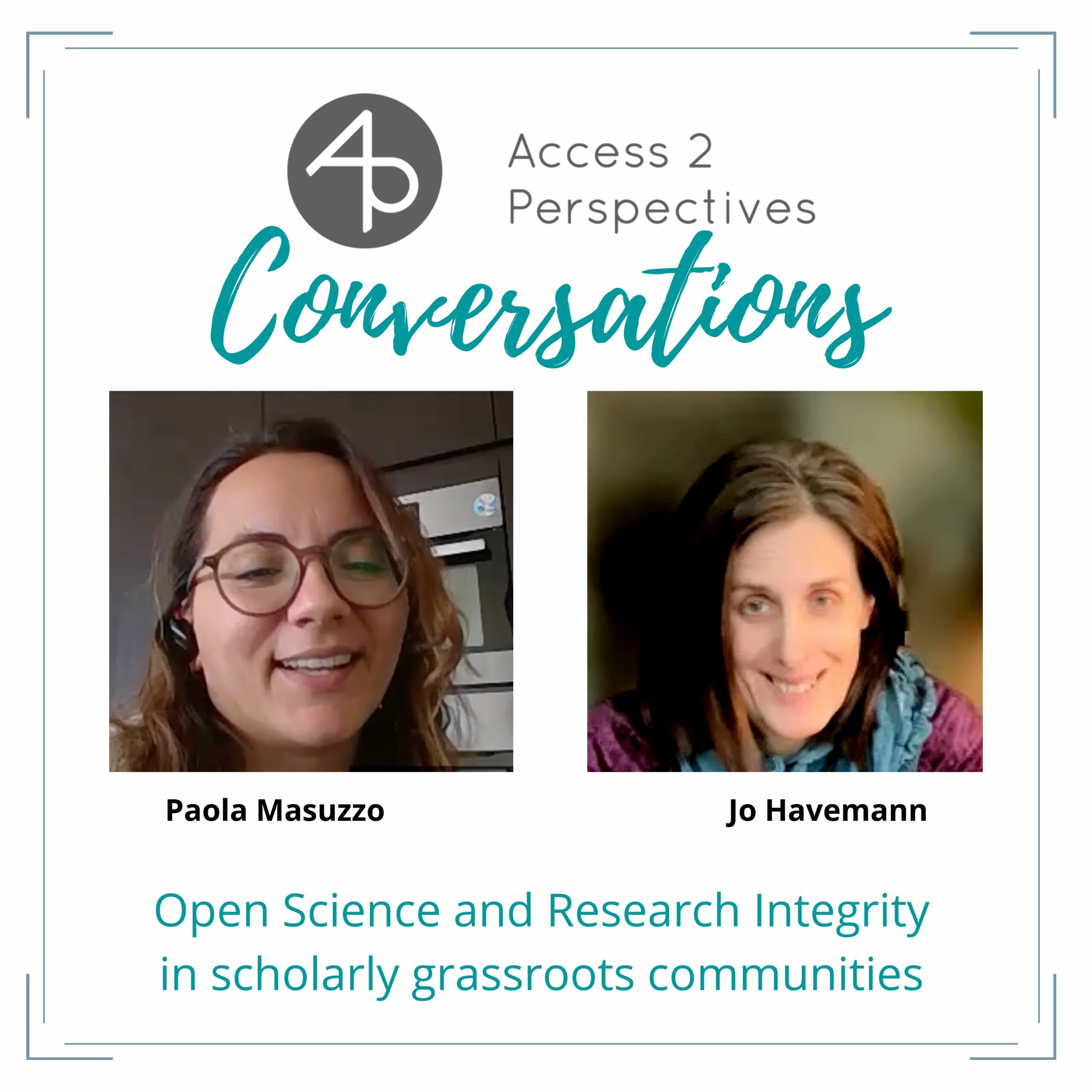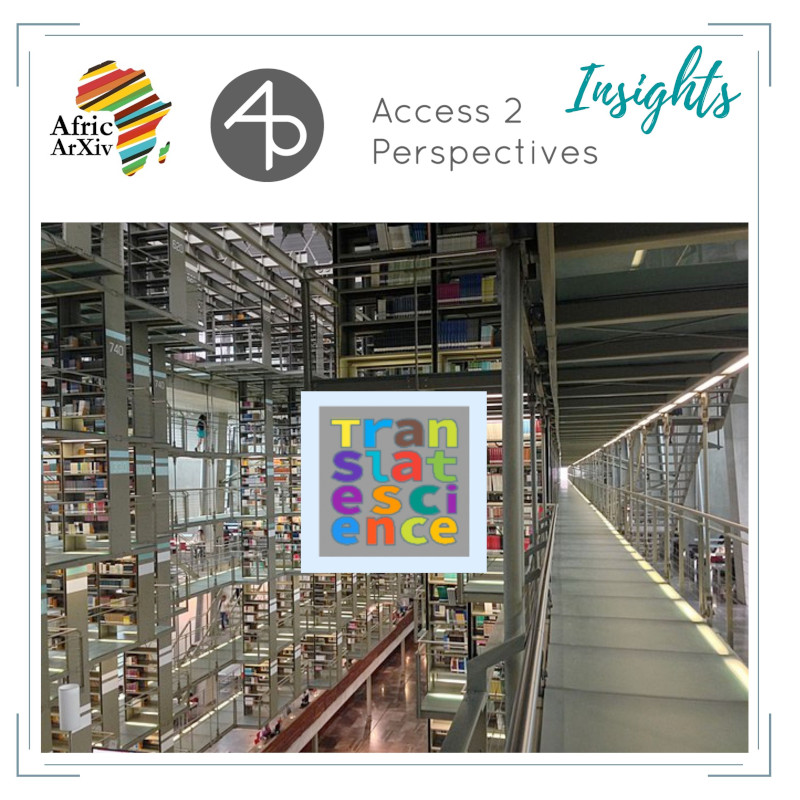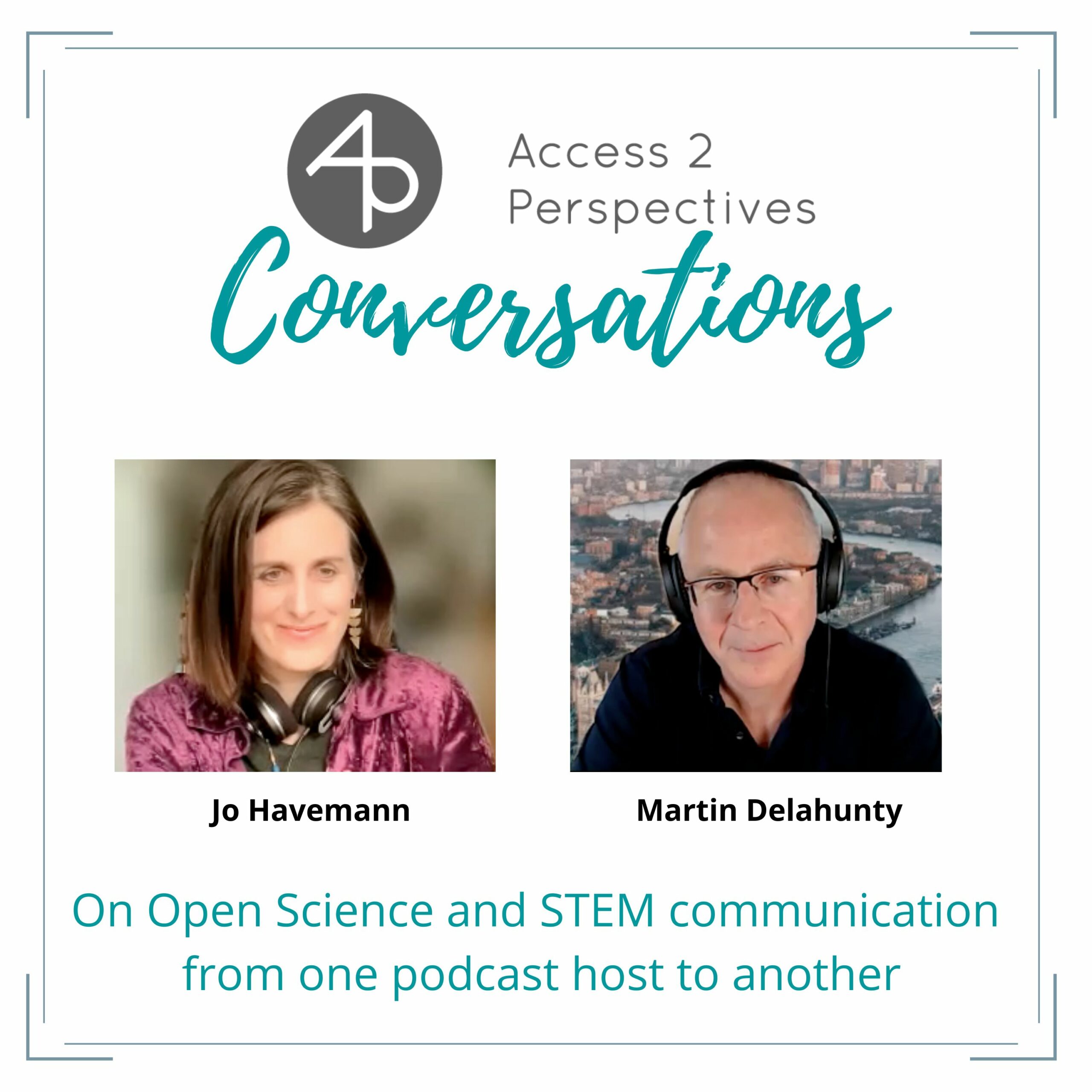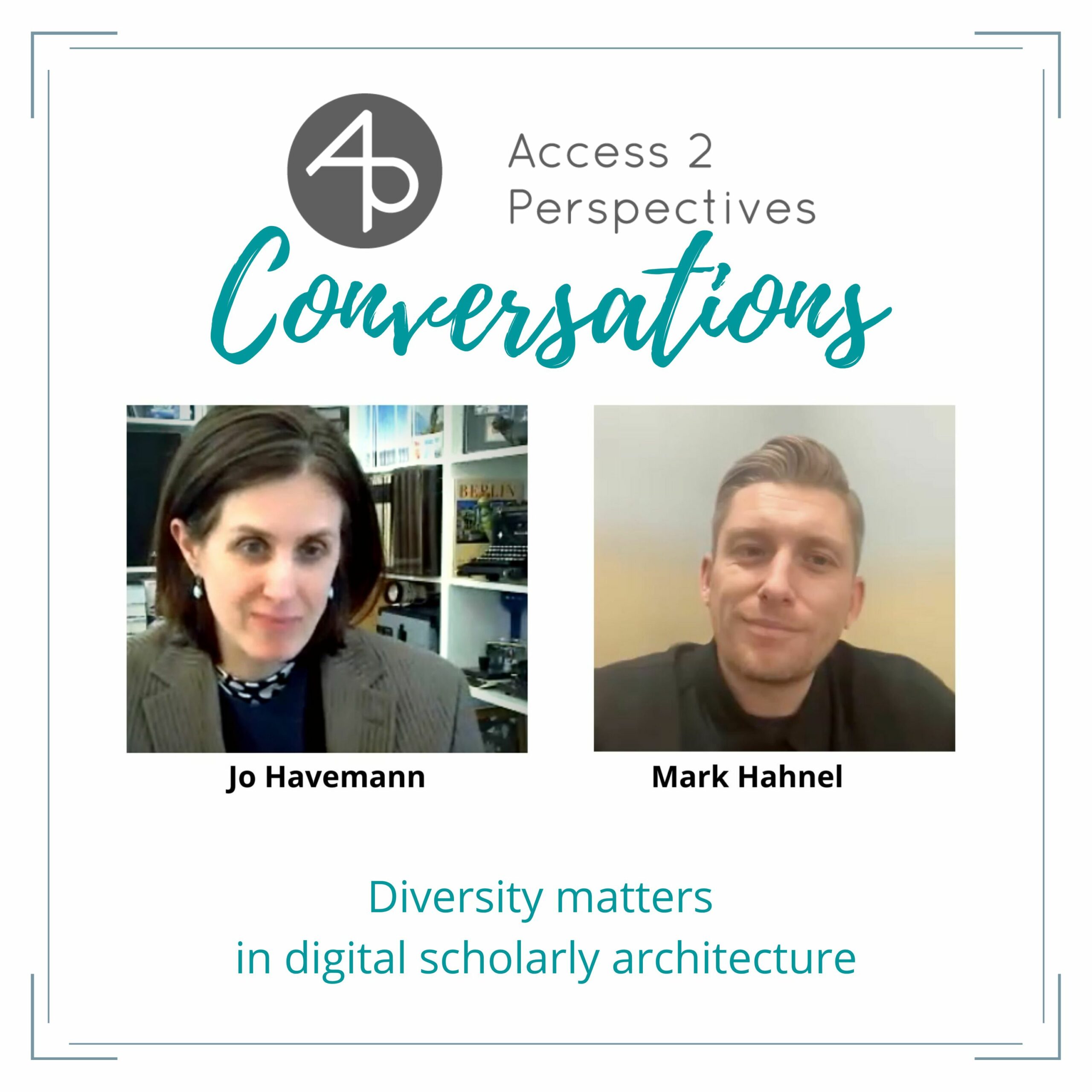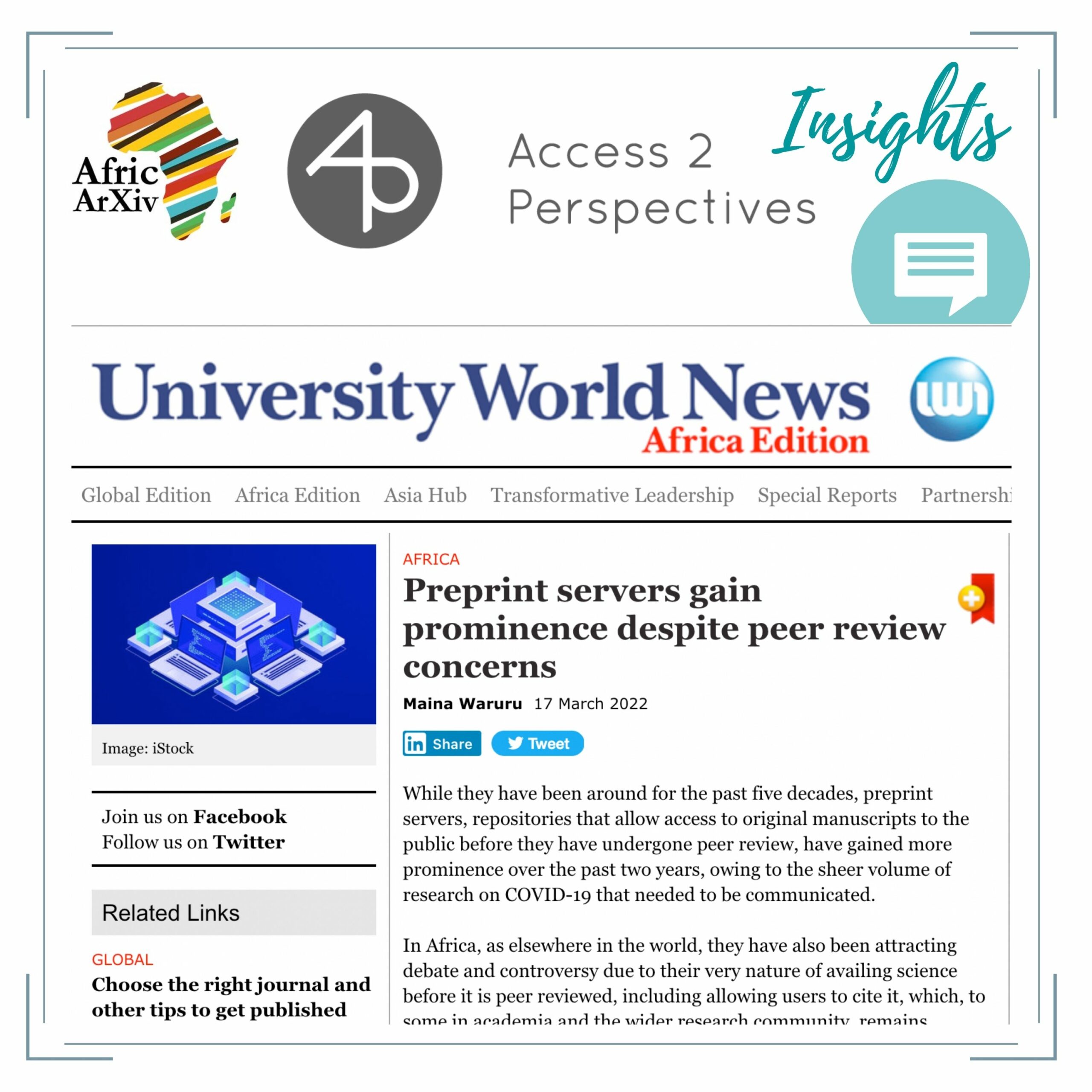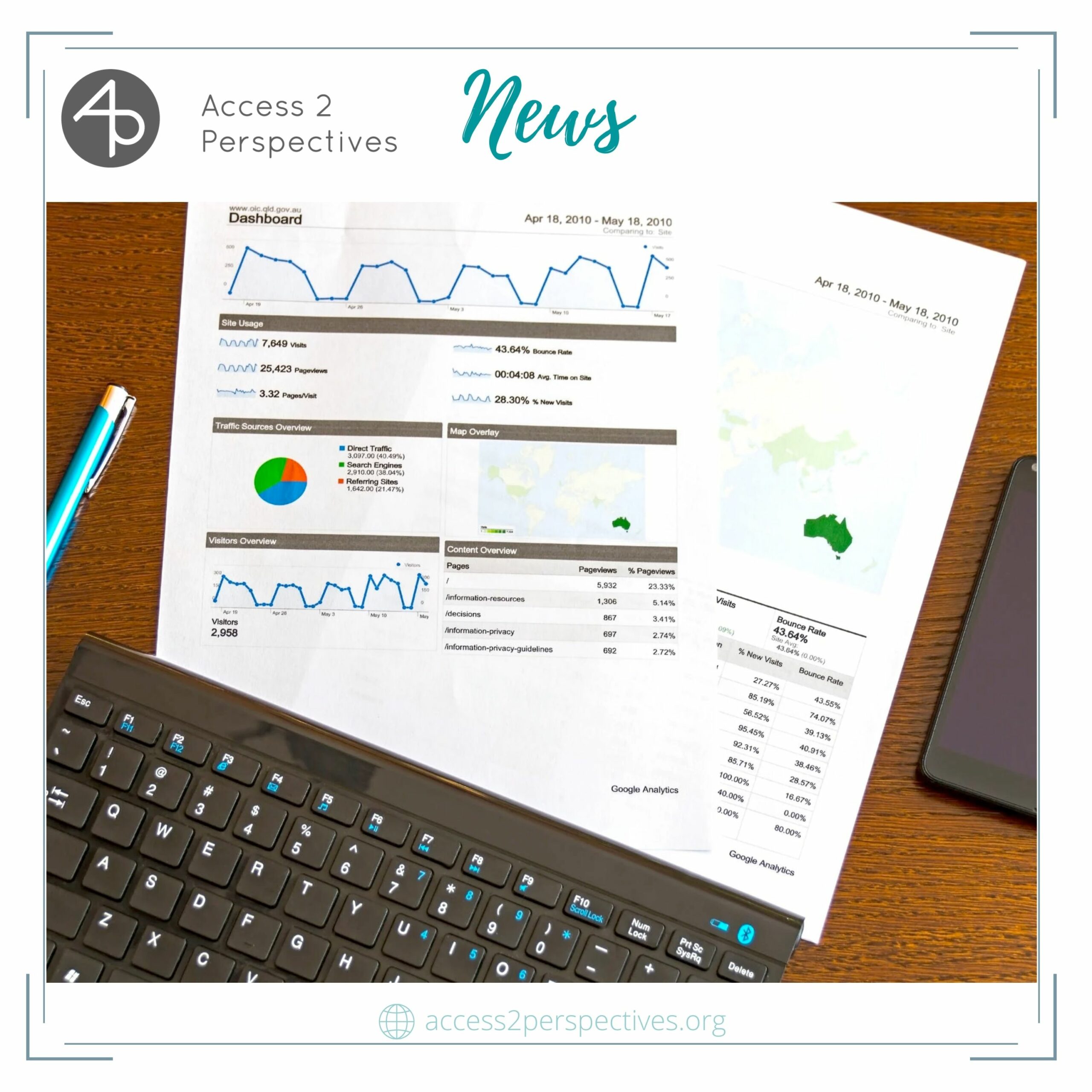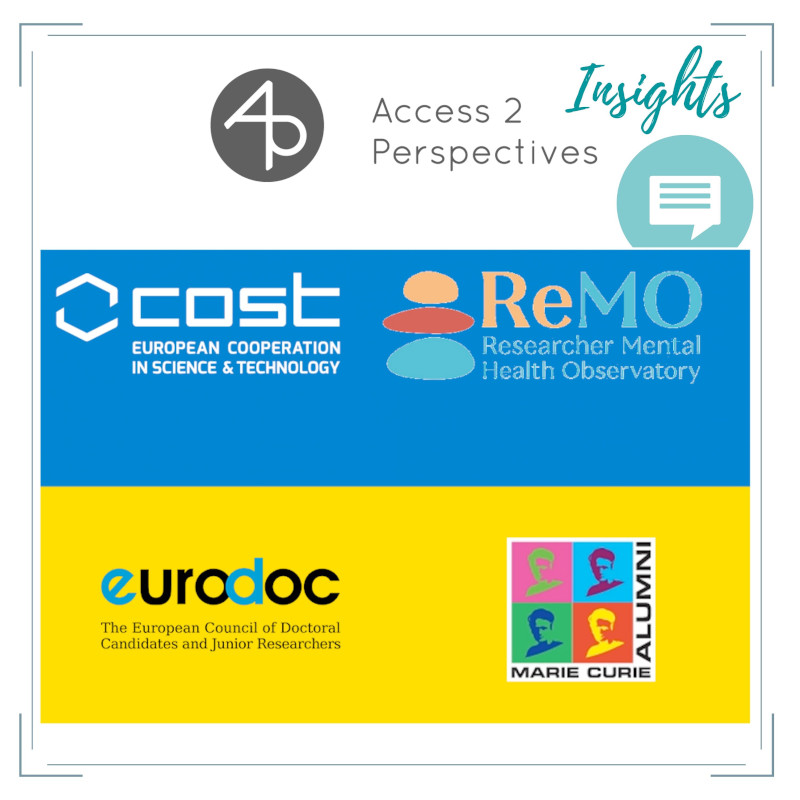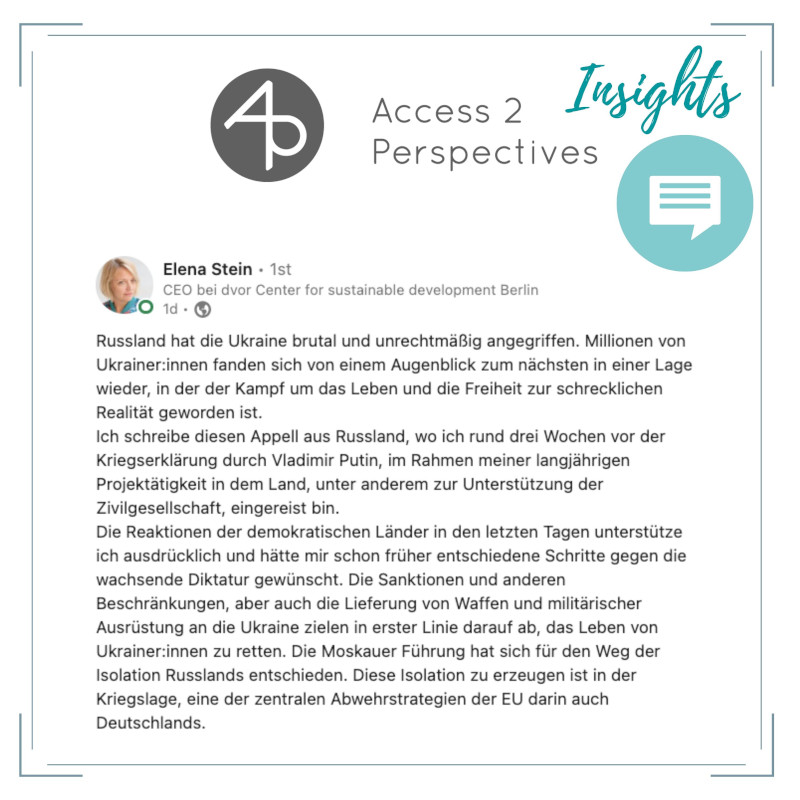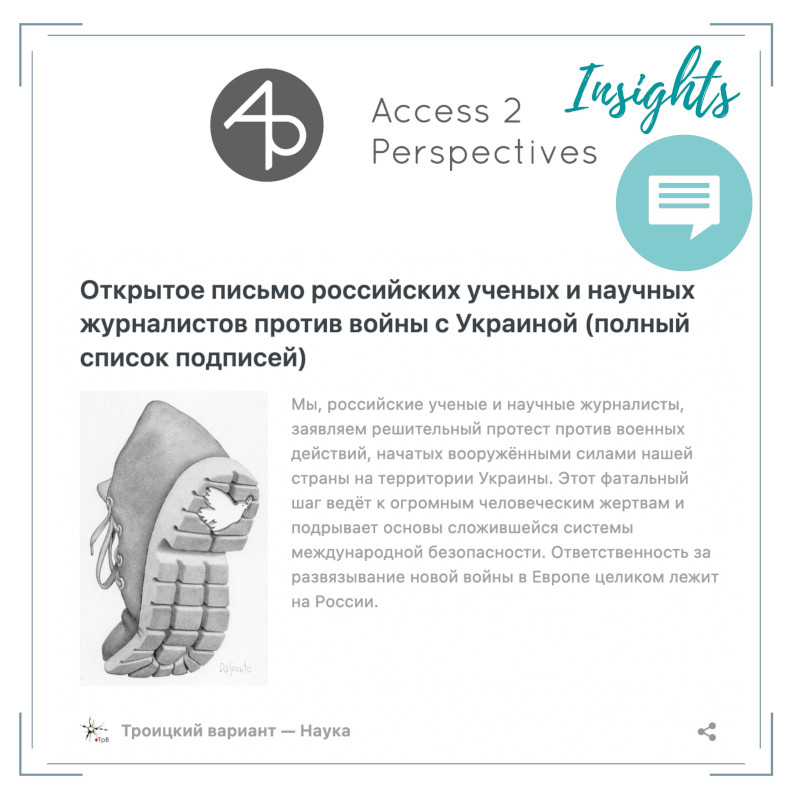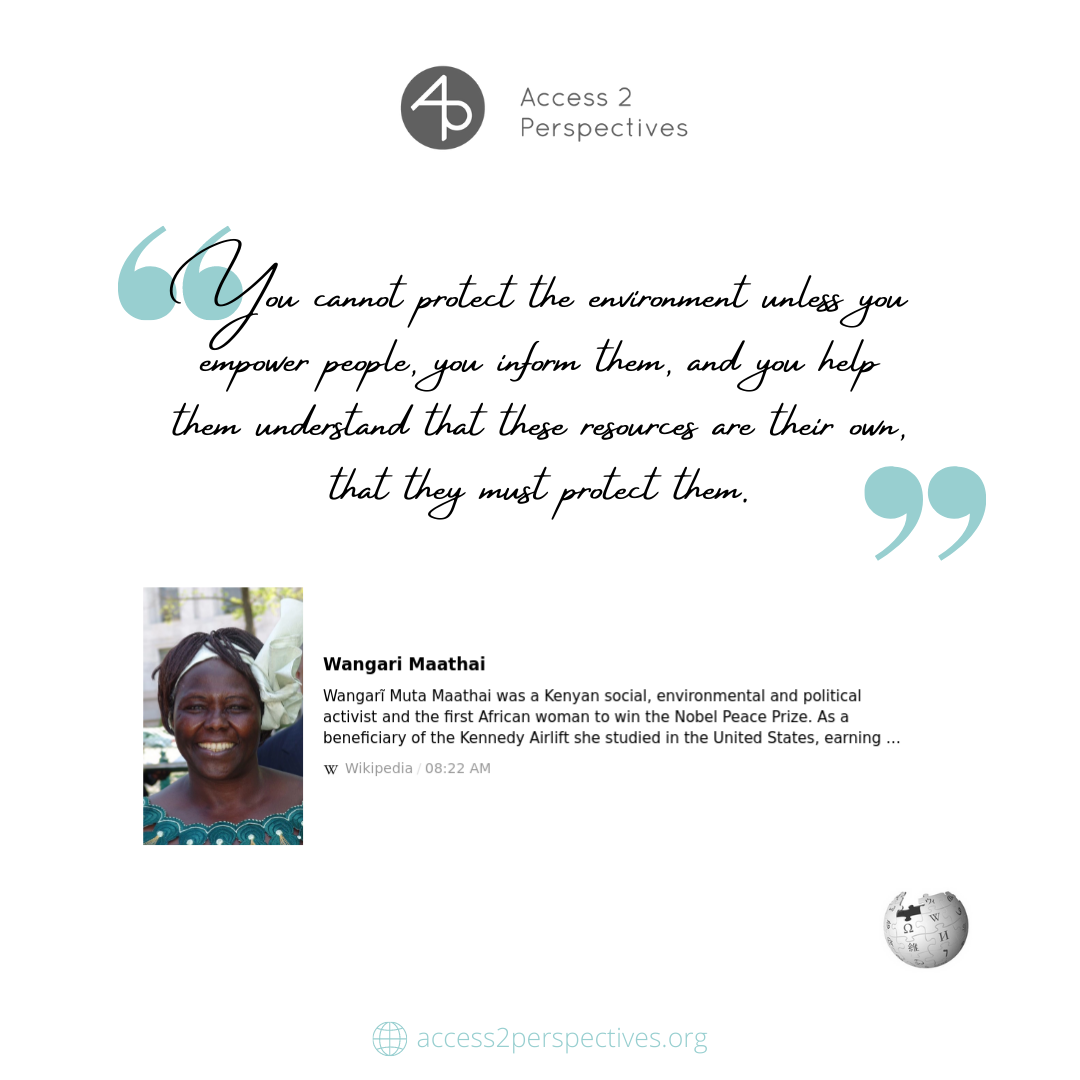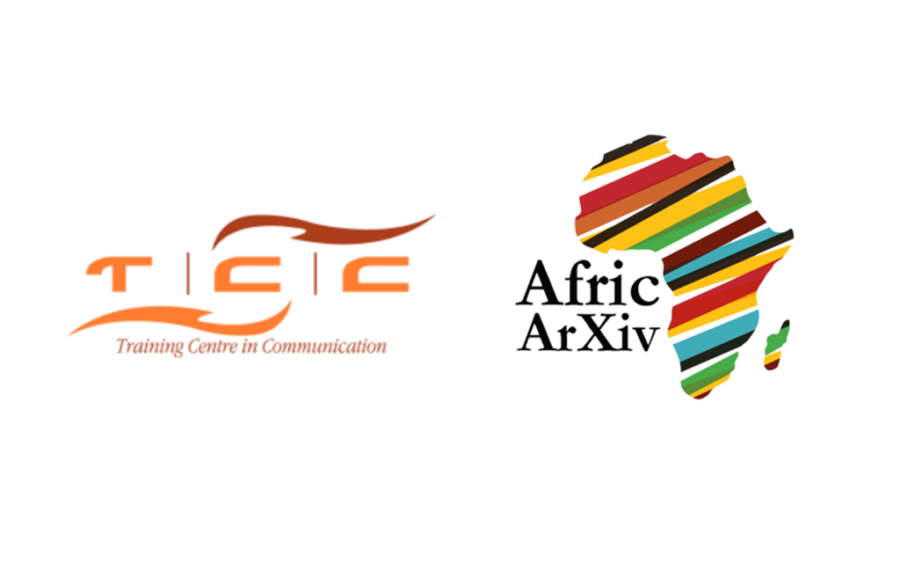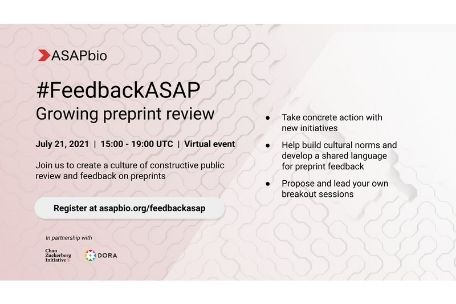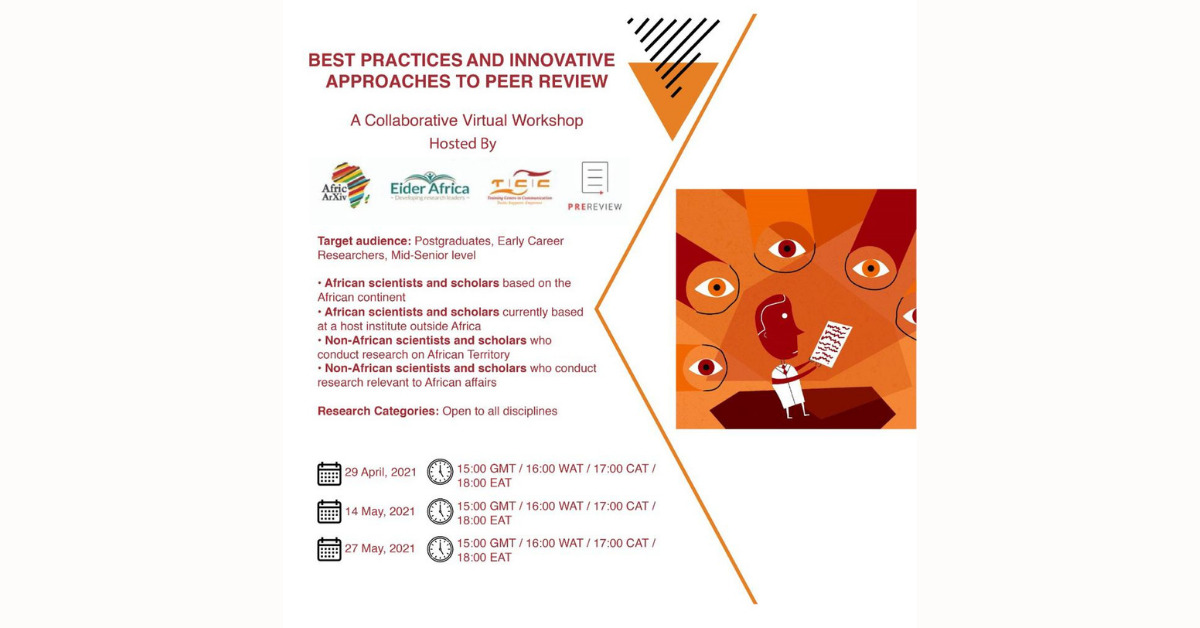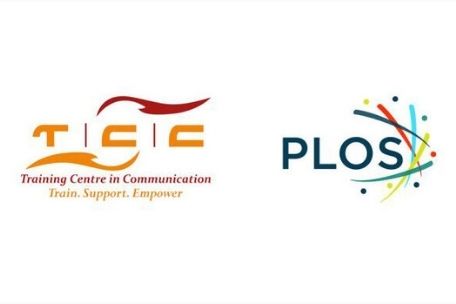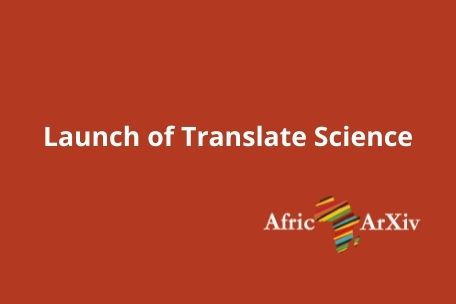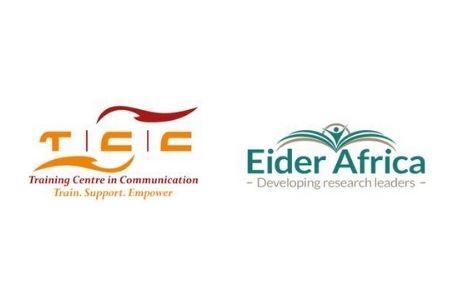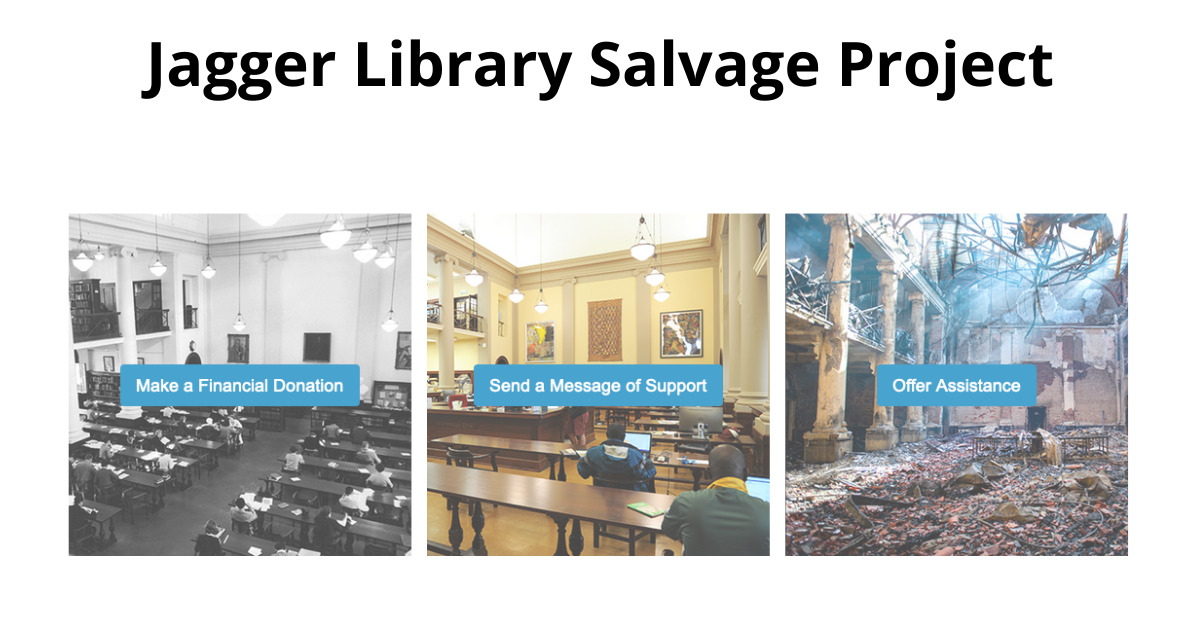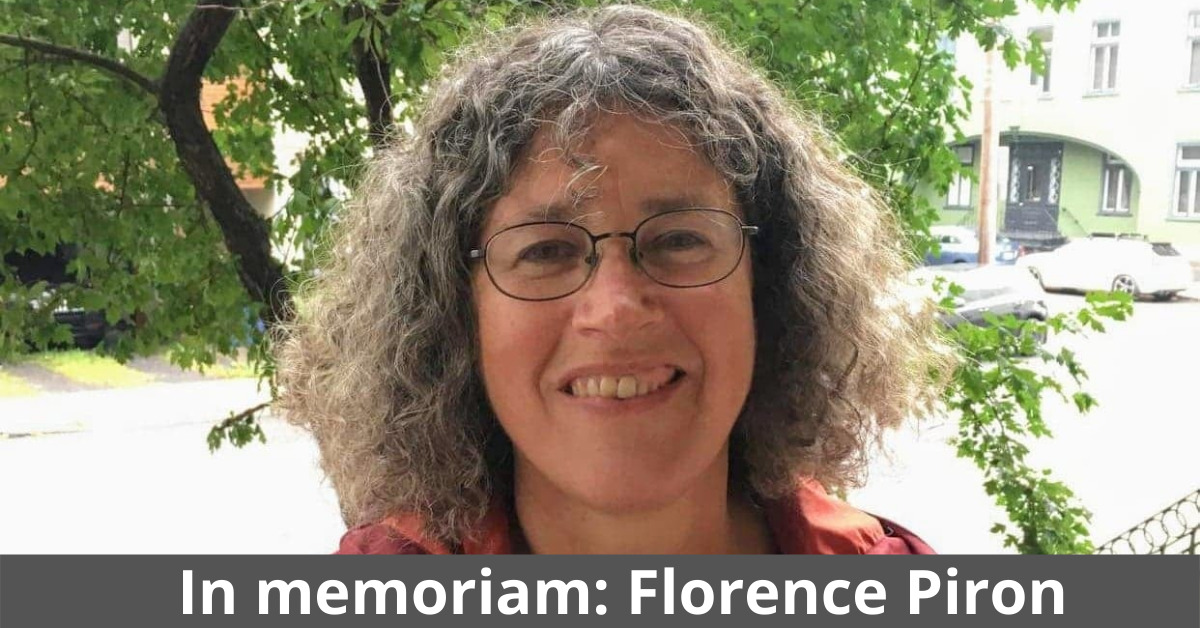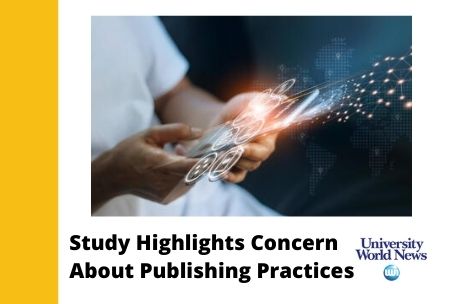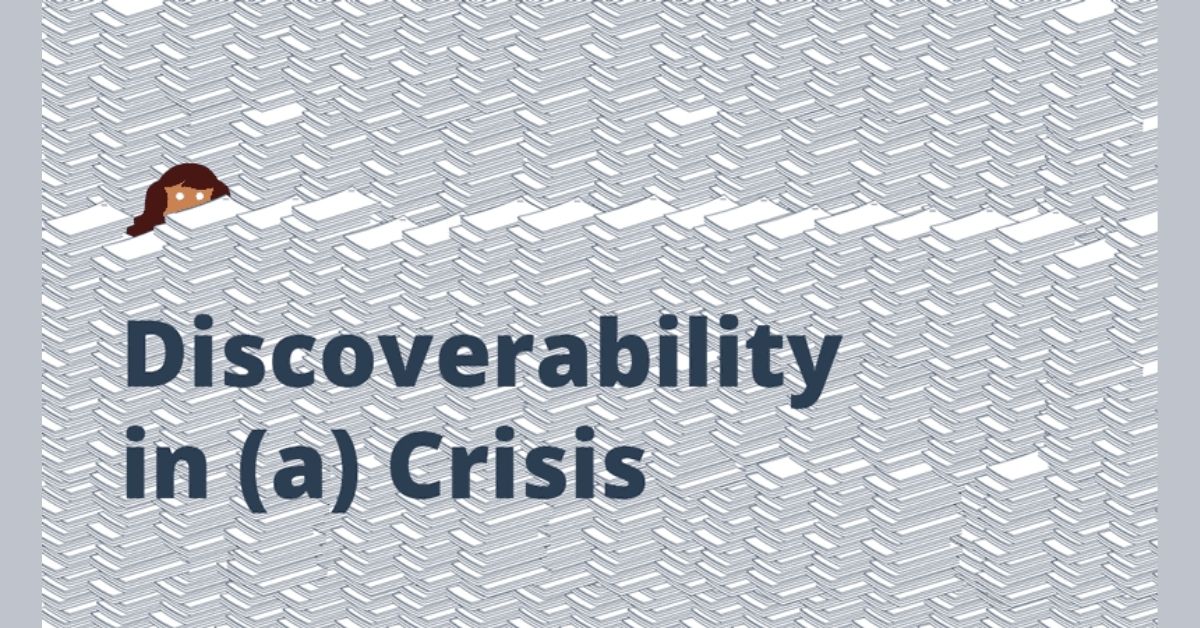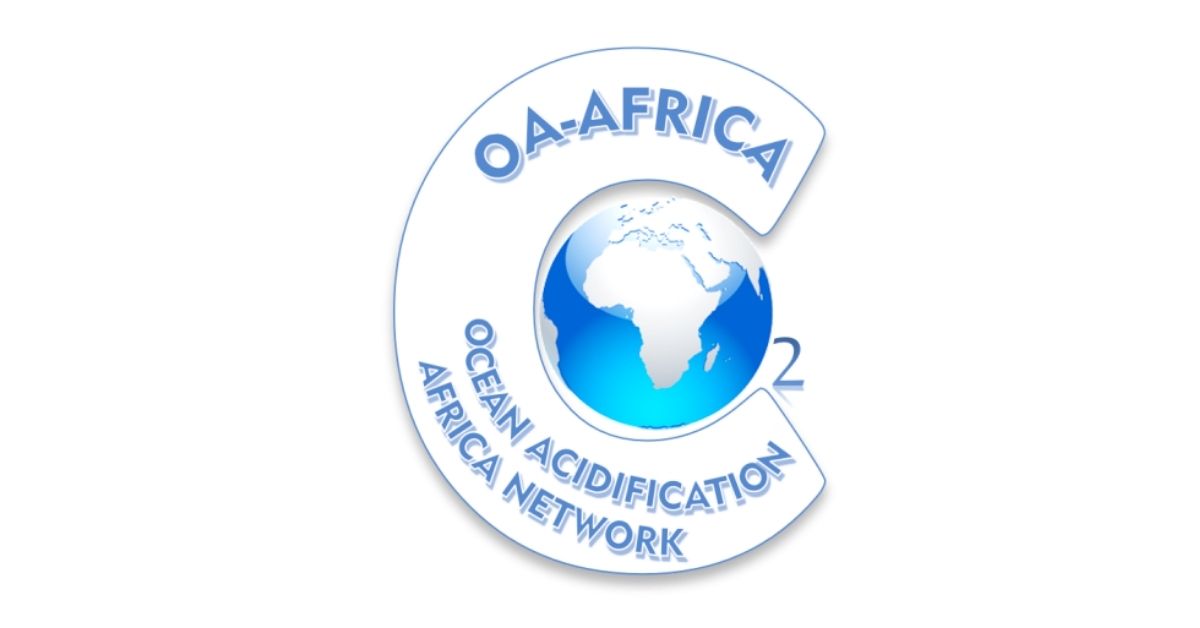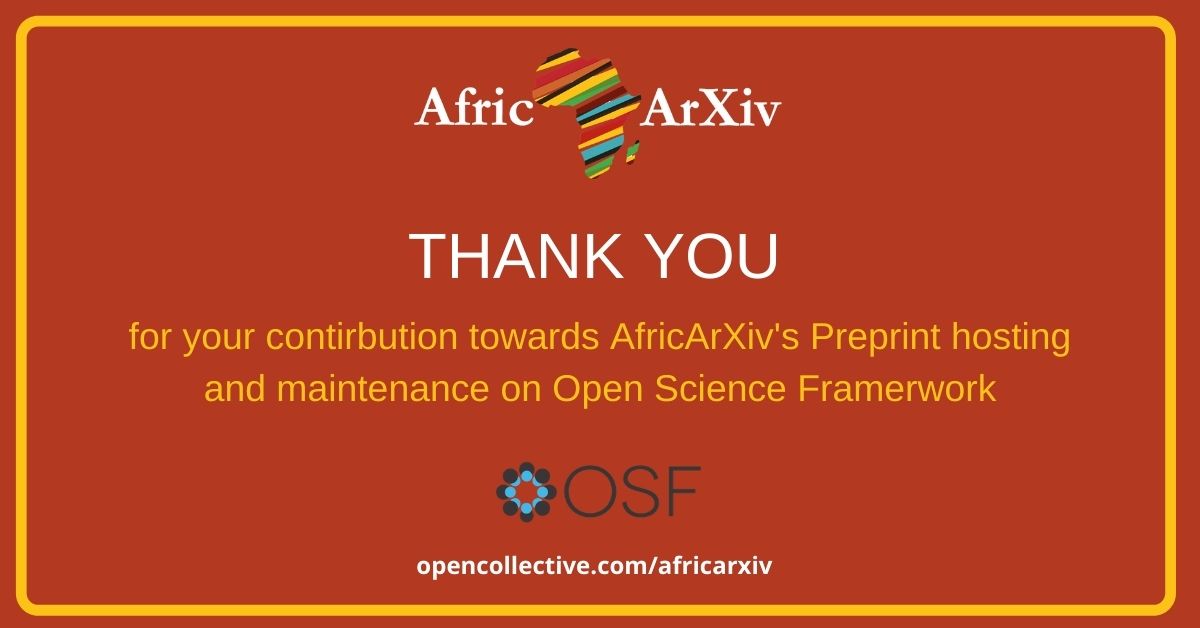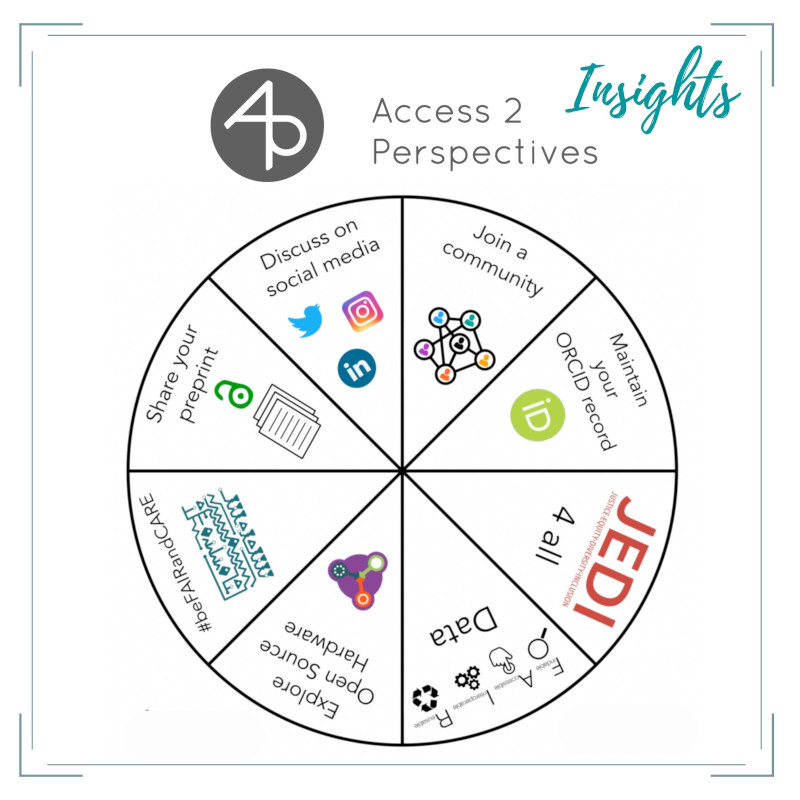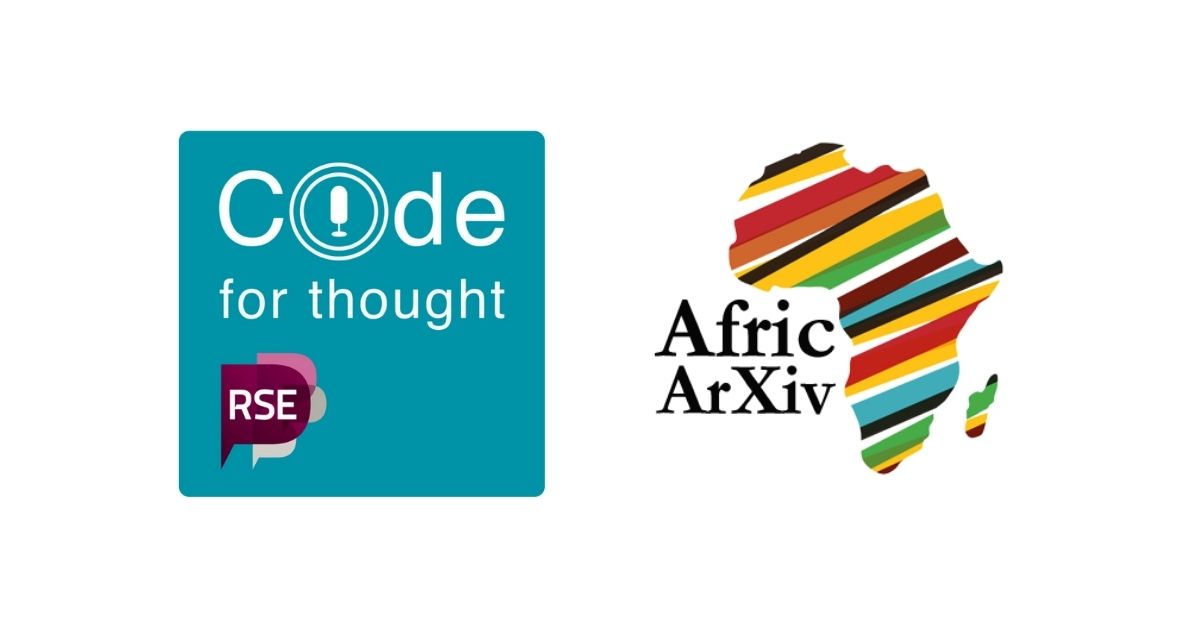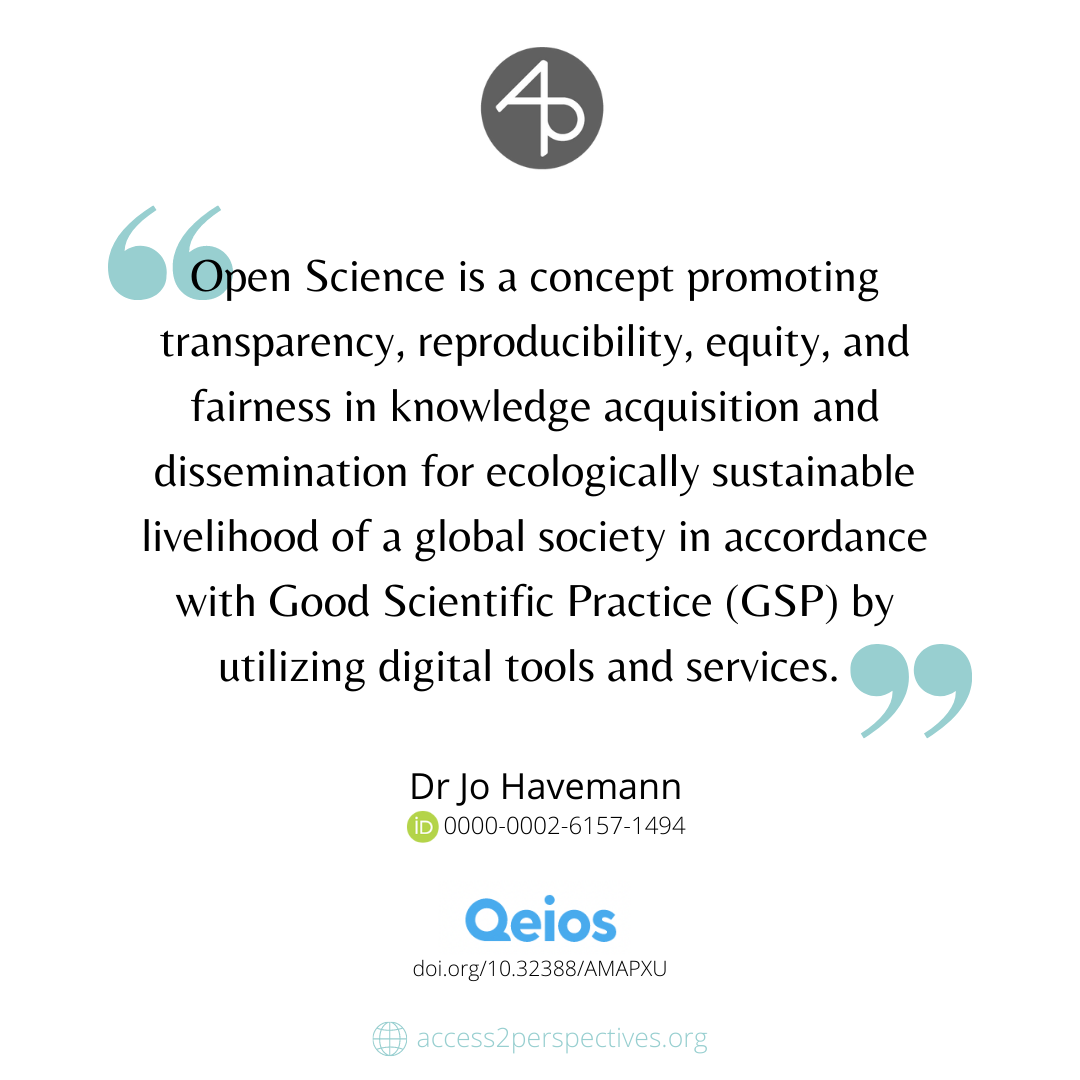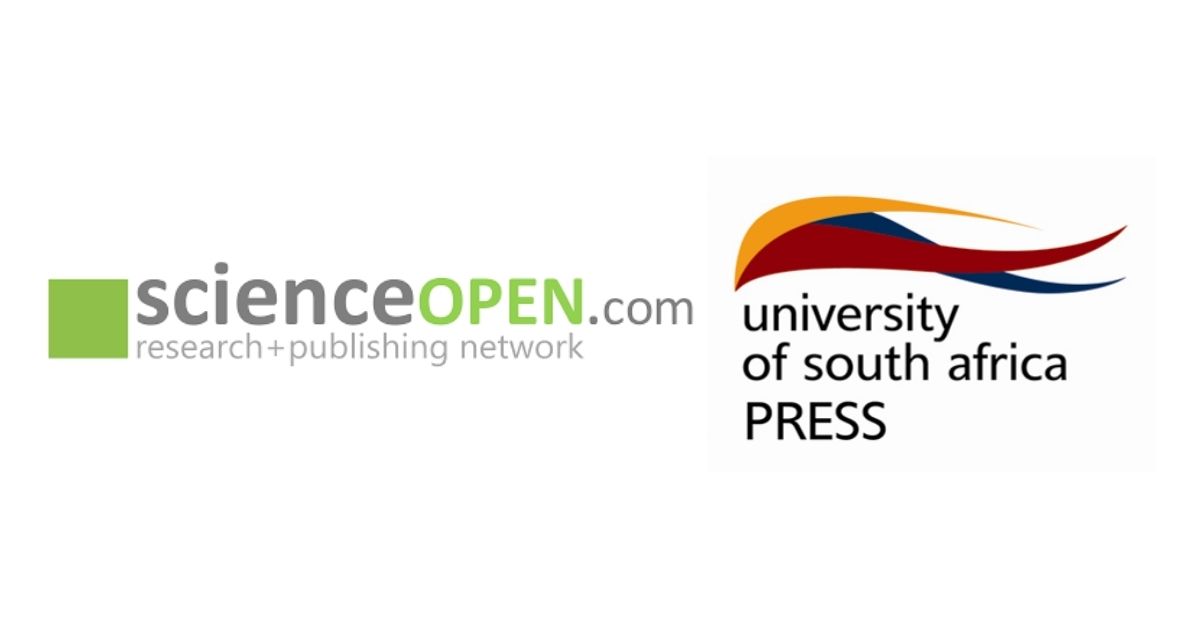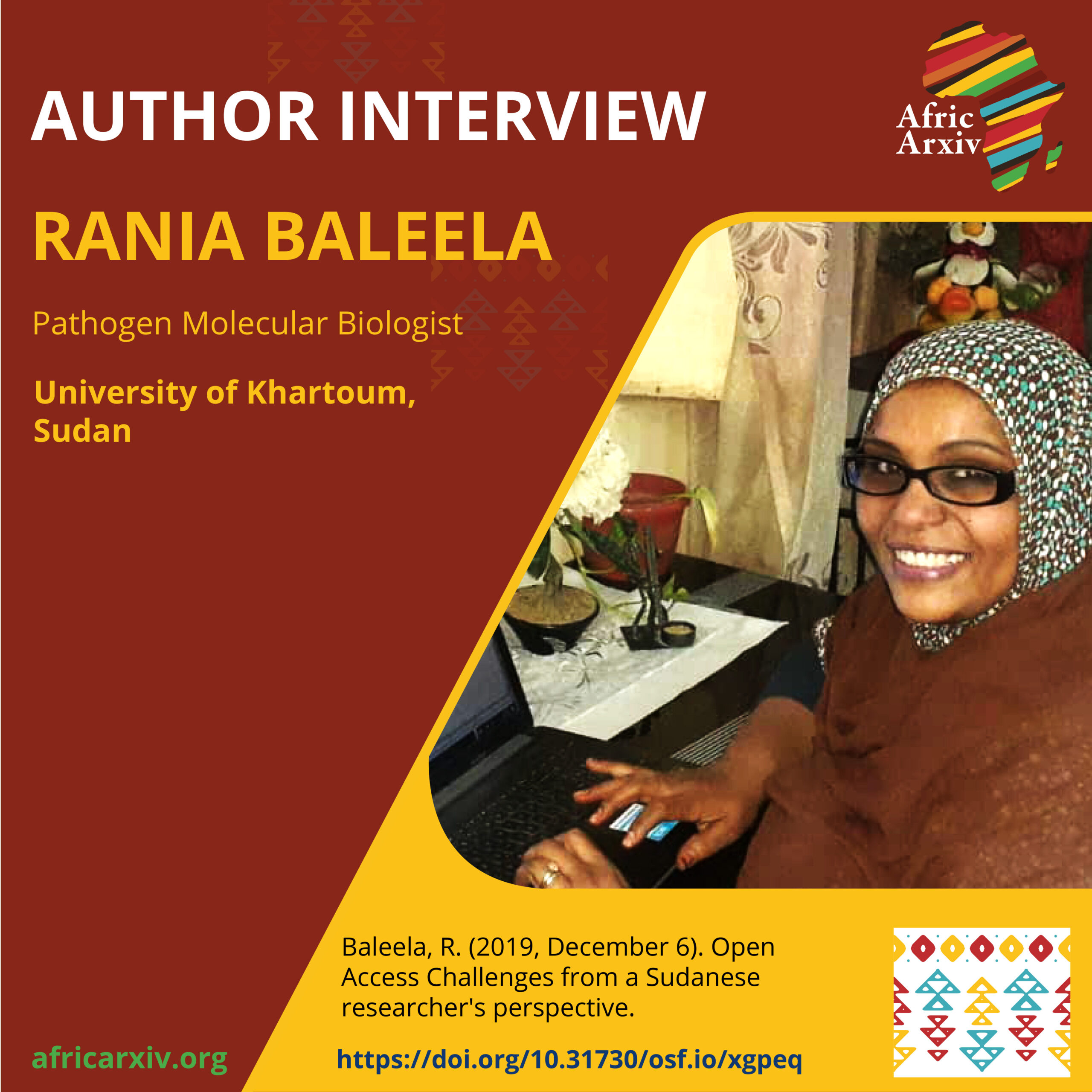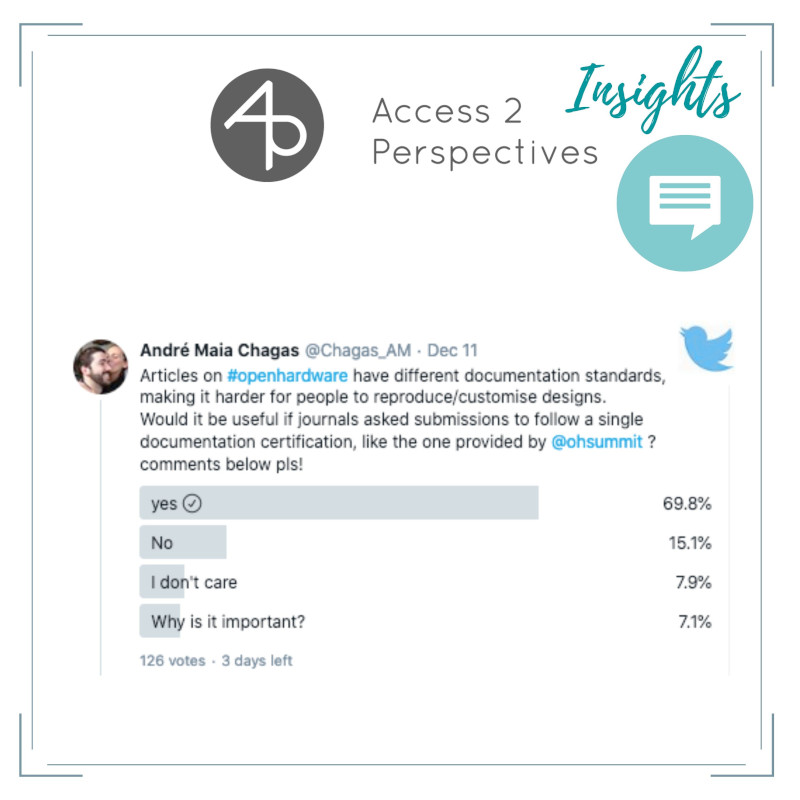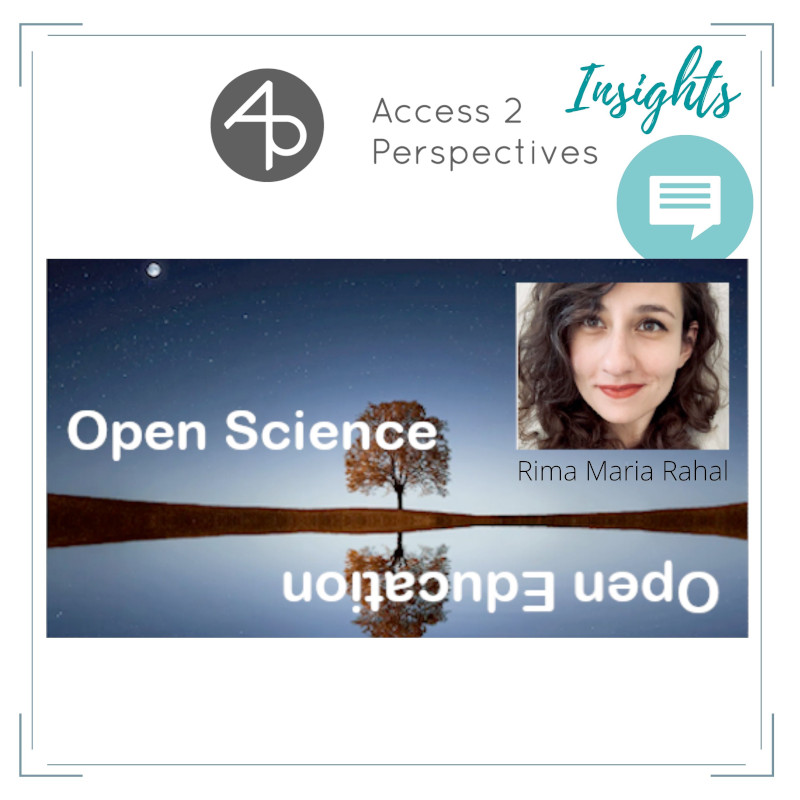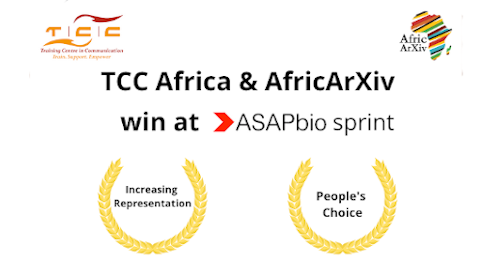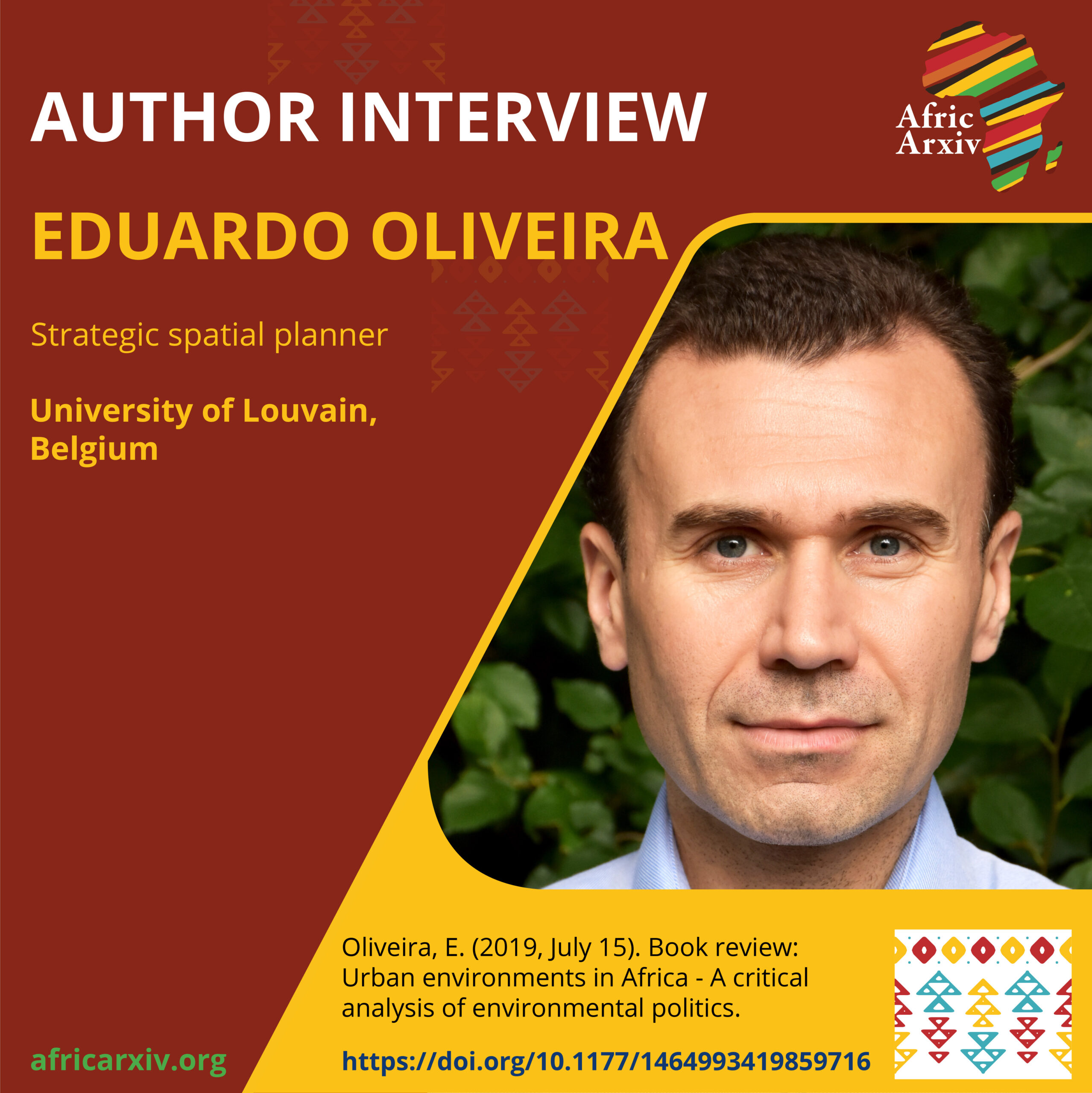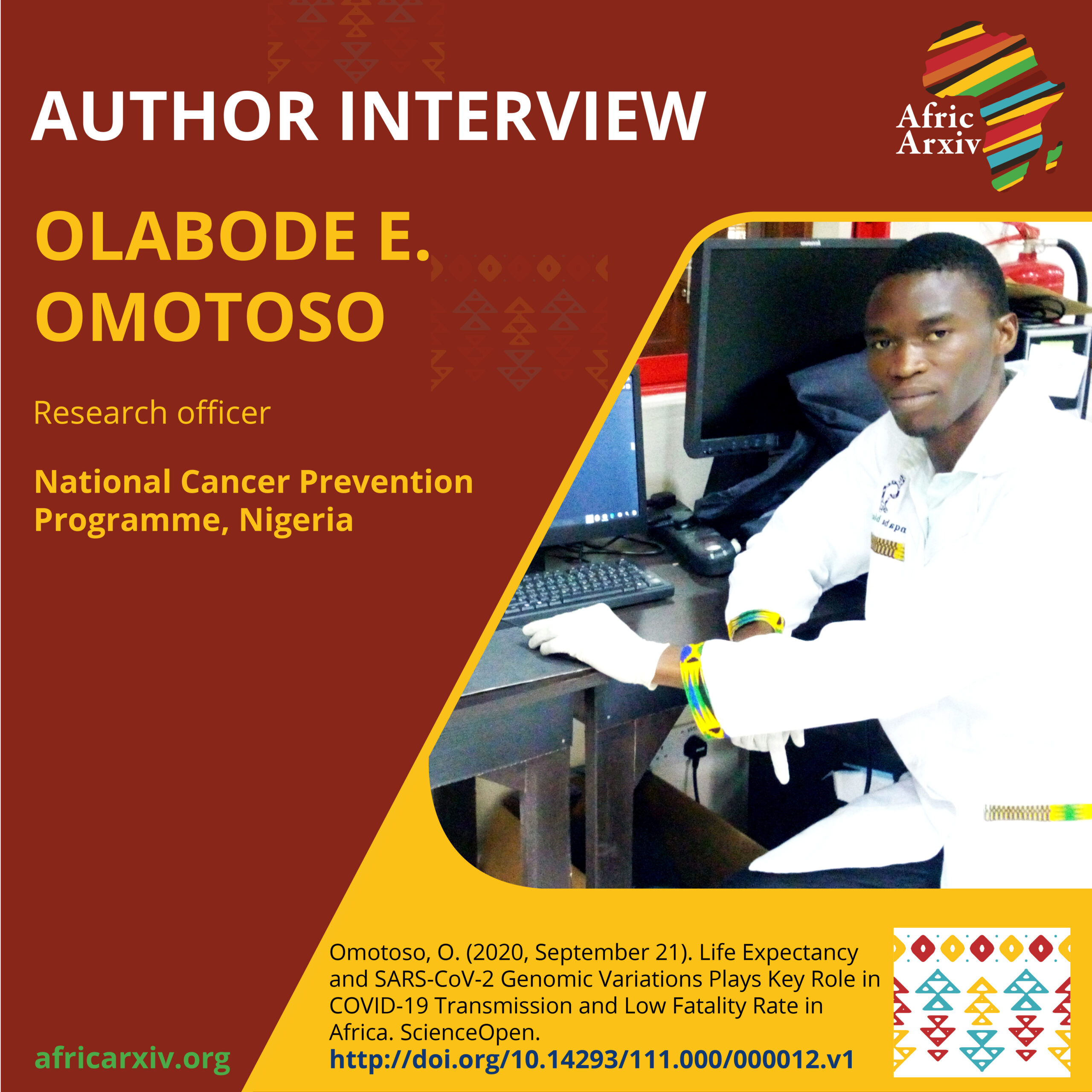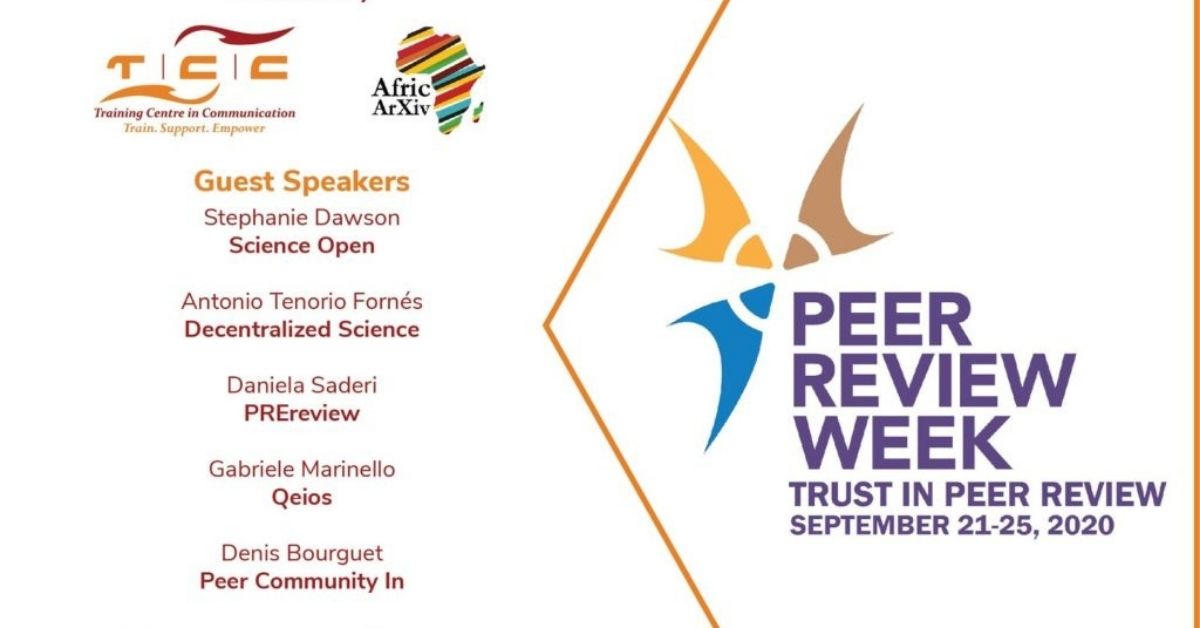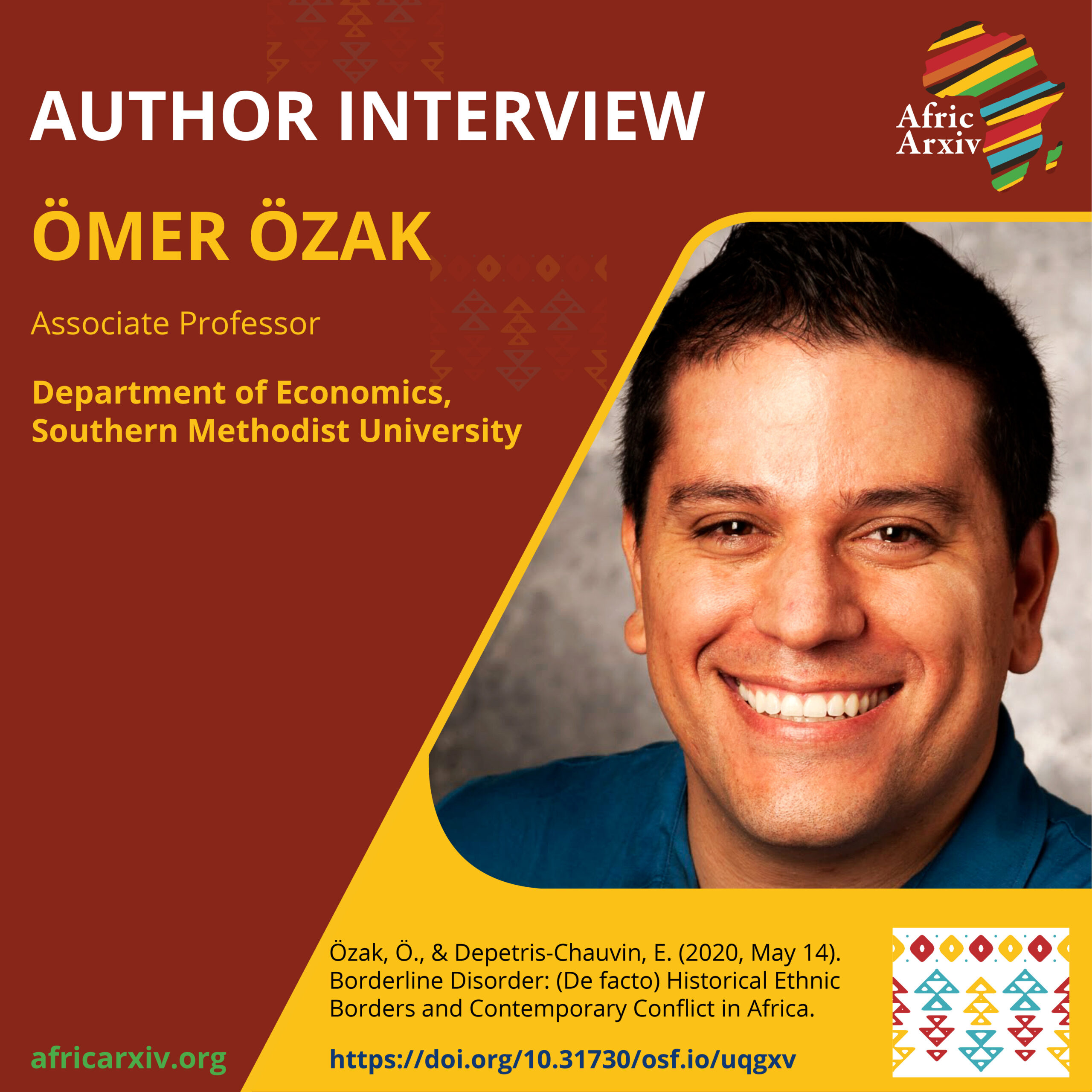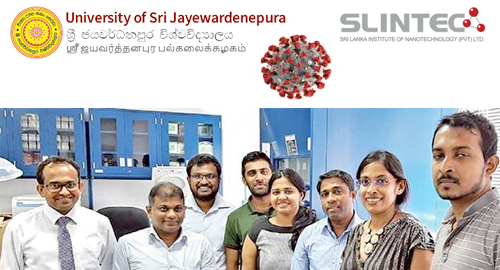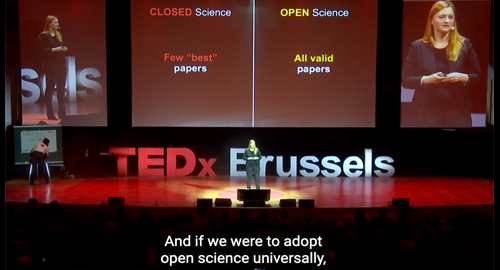Open Science and Research Integrity in scholarly grassroots communities – A conversation with Paola Masuzzo
Data scientists and open knowledge evangelist Paola Masuzza shares with Jo what Open Science means to her, and how Open […]
Translated articles are research output
Translating scholarly works can contribute enormously to a scientific community. Famously, Albert Einstein translated articles into English so that Anglo-Americans could contribute to state-of-the-art science. The modern tendency to ignore scholarship that is not in English leads to lower quality studies and double work. Translation can help overcome linguistic barriers, and is thus an important means to increase accessibility and participation as well as to counteract fragmentation of the literature into linguistic islands.
VAD Conference 2022: AfricArXiv Providing Reciprocal Discoverability of African Research Content
AfricArXiv was represented at the VAD conference 2022 in Freiburg, Germany, organized by the Africa Centre for Transregional Research (ACT) conference focused on the theme of African Europe, reciprocal perspectives and it addressed processes of co-production of knowledge as well as the mutual questioning of different ways. of thinking.
On Open Science and STEM communication from one podcast host to another – A conversation with Martin Delahunty
A conversation with Martin Delahunty
Toward a values-aligned Academy – A conversation with Rebecca Kennison, Simone Sacchi, and Chris Long
A conversation with Rebecca Kennison, Simone Sacchi, and Chris Long
Deafness and Academia – A conversation with Wangari Joyce Ngugi
Following up on our previous episode with Joyce Wangari Nugi, in which we talked about Holistic wellness and mental health in research careers, this episode is about Wangari's work for the deaf community and deafness in academia.
We are joined by N'kadziri Aminah Idd, who facilitates sign language interpretation throughout our conversation (see the video below).
Biotech Without Borders and community biology in NYC – A conversation with Danny Chan
Danny Chan is the President of Biotech Without Borders, a non-profit community biology lab in New York City. Besides trying to defend his time to pursue independent research centered around protocol development for the DIY science community, he enjoys video games, eating new food around the city, watching movies with his partner, and playing table-top RPGs.
IndiaRxiv, the preprint repository for Indian Research – A conversation with Sridhar Gutam
Sridhar Gutam is a Senior Plant Physiologist at ICAR, the Indian Institute of Horticultural Research, and also the Convenor at Open Access India. His main area of interests are Plant Physiology, Plant Phenology and Plant Phenotyping as well as Open Access, Open Data, Free and Open Source Software.
How to maintain mental well-being in the high performing research environment – A conversation with Stephanie Gauttier
Stephanie Gauttier is an Assistant Professor at the Grenoble School of Management (GEM) doing research at the intersection of information systems, human-computer interaction, and ethics. She is the Vice-Chair of the COST Action CA 19117 Researcher Mental Health Observatory and is active in initiatives related to supporting researchers' mental health. For the Marie Curie Alumni Association, Stephanie co-created a peer-to-peer mental health mentoring network.
Combining Conservation -, Visual – and Science Communication – A conversation with Abigail Dean
In today's episode, Jo talks with Abigail Dean about her personal experience from working in the conservation and environmental research field to citizen science projects to web design and social media. Abigail shares her insights about the importance of being able to communicate research and science in a digestible way to the general public that doesn't have a science background.
Vulnerable conversations between scientists – A conversation with Sarah Nyanchera Nyakeri
A conversation with Sarah Nyanchera Nyakeri
A Librarian’s view on Open Science – A conversation with Lambert Heller
A conversation with Lambert Heller
Leaving academia and staying connected – A conversation with Mimi Zhou
Dr. Mimi Zhou is a conversion copywriter who works with coaches and service providers to unleash the full impact of […]
Exercising your freedom to publish – A conversation with Dasapta Erwin Irawan
A conversation with Dasapta Erwin Irawan
The FAIR principles in practice for publishing data and other scholarly objects – A conversation with Donny Winston
A conversation with Donny Winston
Diversity matters in digital scholarly technology – A conversation with Mark Hahnel
A conversation with Mark Hahnel.
Scientific diplomacy in this time of war – A conversation with Nithaya Chetty.
Nithaya Chetty is a Professor in theoretical and computational physics and Dean at the Faculty of Science at Witwatersrand University in Johannesburg, South Africa. In a recent commentary in University World News, Nithaya expressed his concern about the war in Ukraine and emphasized the need for scientific diplomacy and cooperation. In this conversation, Nithaya and Jo talk about the options, opportunities, and difficulties scientific diplomacy provides.
Open Science & Goats – A conversation with Christian Nawroth
A conversation with Christian Nawroth.
Co-Creation as a new approach for self-exploration and teamwork – A conversation with Rike Bucher
A conversation with Rike Bucher.
Helicopter research and its effects on project sustainability – A conversation with Nicholas Outa
A conversation with Nicholas Outa.
Swedish [open] scholarship and Chili Peppers
Nadja Neumann tells us about her journey from molecular biologist to research advisor and podcast host. With a PhD in Molecular Biology and a strong commitment to scholarly communication and open science, Nadja is keen to find ways to bridge the gap between the research community and other stakeholders to create an open, equitable, and efficient exchange of knowledge. Currently living her passion by working with research support at Karlstad University, Nadja's areas of expertise are strategic publishing, bibliometrics, data management, and sch
Preprint servers gain prominence, a spotlight on AfricArXiv
Talking about preprints and AfricArXiv in particular, we are honored to be featured in University World News along with colleagues and institutional partners Joy Owango (TCC Africa-Training Centre in Communication), Stephanie Dawson (ScienceOpen), Mark Hahnel (Figshare), Catherine Ahearn (Knowledge Futur
Podcast: AfricArXiv and TCC Africa Partnership for African Research Visibility
In October 2021, AfricArXiv, the African Open Access Portal, announced a partnership with the Training Centre in Communication TCC Africa […]
Scientific Writing, ESL and Storytelling – A conversation with Maureen Archer
Maureen Archer is President of the training and consulting firm Professional English Inc. and helps professionals (incl. researchers) improve their English skills and confidence for career advancement. With Jo, she talks about the career path that led her to her current profession, common challenges and obstacles with the English language as perceived by non-native English speakers, as well as some of the key skills researchers should have in communicating their ideas, thoughts, and results.
The war in Ukraine and Russian perspectives – A conversation with Tatyana Deryugina
Tatyana Deryugina talks with Jo Havemann about the ongoing war in Ukraine, her outreach to Russian scholars to encourage them to oppose the war and take feasible action, as well as some of the responses she received.
Statement of the ReMO COST Action on solidarity with Ukraine
The ReMO COST Action stands in solidarity with the people of Ukraine. We add our voices to the joint declaration of Eurodoc and the Marie Curie Alumni Association and strongly condemn the Russian Federation’s acts of violence and aggression against the people of Ukraine. We also concur with the COST Association’s call for international efforts to help ensure the safety of Ukrainian researchers and innovators.
Support research and cultural professionals in Russia
Let us support the opposition in Russia by maintaining ties with Russian colleagues in Research and Cultural professional contexts and intl collaboration.
Please read the Engl Translation of Elena Stein's post: …
An open letter from Russian scientists and science journalists against the war with Ukraine
We, Russian scientists and scientific journalists, declare a strong protest against the hostilities launched by the armed forces of our country on the territory of Ukraine. This fatal step leads to huge human losses and undermines the foundations of the established system of international security. The responsibility for unleashing a new war in Europe lies entirely with Russia.
Open Hardware Makers – A conversation with Julieta Arancio, Alex Kutschera, and André Maia Chagas
Julieta Arancio, Alex Kutschera and André Maia Chagas share details about their mentorship program for Open Hardware projects.
Holistic wellness and mental health in research careers – A conversation with Wangari Joyce Ngugi
Wangari talks about her experience as a professional in mental health, her work at Eider Africa, and the importance of community values for holistic well-being.
Wangari Maathai: Protect the environment
"You cannot protect the environment unless you empower people, you inform them, and you help them understand that these resources are their own, that they must protect them."
– Wangari Maathai
Max Planck: An experiment is …
"An experiment is a question which science poses to Nature, and a measurement is the recording of Nature’s answer."
– Max Planck
Building communities and collaborations using socio-technical systems – A conversation with Laure Haak
Laure shares steps in her career including her contributions to ORCID as founding executive director that led her towards building the Mighty Red Barn consultancy. We explore the purpose and role of [open] scholarship and respectful community building as well as collaboration in engaging with societal challenges.
Join our conversations!
Access 2 Perspectives now hosts conversations around various topics from Open Science to Science Communication.
Marie Cure: Now is the time
en.wikipedia.org/wiki/Marie_Curie
Open Reviewers Africa (presentation)
Owango, Joy, Munene, Aurelia, Ngugi, Wangari Joyce, Obanda, Johanssen, Havemann, Johanna, Saderi, Daniela, & Korzec, Kornelia. (2021, December 9). Open Reviewers Africa – A workshop to empower the next generation of African Peer Reviewers. FORCE2021: Joining Forces to Advance the Future of Research Communications. Zenodo. https://doi.org/10.5281/zenodo.5770712
New Dawn for African Researchers as TCC Africa and AfricArXiv Announce Formal Collaboration
The Training Centre in Communication (TCC Africa), based at the University of Nairobi, Kenya, and the pan-African Open Access portal […]
Announcing #FeedbackASAP by ASAPbio
ASAPbio is partnering with DORA, HHMI, and the Chan Zuckerberg Initiative to host a discussion on creating a culture of constructive public review and feedback on preprints. Read the full ASAPbio announcement and find out how to register for the event and to support preprint review.
Best Practice and Innovative Approaches to Peer Review
AfricArXiv, Eider Africa, TCC Africa, and PREreview are joining forces to bring together scientists from across Africa and scientists engaged in African-related research for a series of 3 virtual discussions and collaborative peer review.
PLOS and TCC Africa Partnering to Support African Researchers
We are excited to share the news that the Open Access publisher PLOS and our partner, the Training Centre in Communication (TCC Africa) are formally collaborating to promote a more inclusive Open Science future.
Launch of Translate Science
Translate Science is interested in the translation of scholarly literature. Translate Science is an open volunteer group interested in improving the translation of scientific literature. The group has come together to support work on tools, services and advocate for translating science.
TCC Africa and Eider Africa Collaborate to Mentor Early Career Researchers from Sub Sahara Africa
If you are a researcher, you are probably familiar with the research lifecycle and all the challenges and opportunities that […]
Support needed after fire at UCT Libraries
After the devastating fire at the Library campus of the University of Cape Town (UCT) on April 18, 2021, in […]
In memoriam of Florence Piron
Florence Piron was an anthropologist and ethicist, working as a professor in the Department of Information and Communication at Laval […]
Exploring publishing practices in Africa
The University World News released a report titled Study highlights concern about publishing practices, expressing the challenges that are faced by Sub-Saharan African researchers that consequently lead to few peer-reviewed articles published in the online publishing industry from the African continent.
The Challenge of Discoverability
AfricArXiv is working in collaboration with Open Knowledge Maps to increase the visibility of African research. In the midst of […]
Decolonising Research Methodologies
AfricArXiv is contributing to decolonisation by promoting an understanding of decolonisation through preprints; accepting preprint submission in both lingua-franca and native languages, and enabling ownership of African research by Africans through establishing of a decentralized, Africa-owned digital repository for the African continent.
Call for African Marine Researchers
Ocean Acidification Africa (OA-Africa) is a pan-African network specifically convened to coordinate and promote ocean acidification (OA) awareness and research in Africa.
Successful campaign: OSF preprint hosting & maintenance
We are grateful to everyone who contributed to the AfricArXiv hosting and maintenance on the Open Science Framework (OSF).
Open Science Pie
The Open Science Pie visualizes eight (8) important pieces of Open Science that can easily be implemented by any researcher to foster transparent, reproducible, and efficient research practices.
Job opportunity: Frontend developer for a Funding Observatory
As a frontend developer or tech-savvy person with experience in the same, you are cordially invited to contribute to finalizing […]
A podcast: Making African Science Visible
The AfricArXiv team contributed to the third episode of Code for Thought, a podcast on ‘software, engineering, research and anything in between’ created by Peter Schmidt of the Society of Research Software Engineering.
Open Science (Definition)
Open Science is a concept promoting transparency, reproducibility, equity, and fairness in knowledge acquisition and dissemination for ecologically sustainable livelihood of a global society in accordance with Good Scientific Practice (GSP) by utilizing digital tools and services.
ScienceOpen and the University of South Africa Press launch the preprint server UnisaRxiv
Our partner repository ScienceOpen has cooperated with the University of South Africa (UNISA) Press to create the preprint server UnisaRxiv. […]
Interview with Rania Mohamed of University of Khartoum, Sudan
Dr. Rania Baleela, from University of Khartoum, Sudan, is a pathogen molecular biologist working towards developing infectious diseases control strategies. This interview explores Dr. Baleela’s research work, experience and her efforts in educating her community in dealing with poisonous and venomous organisms.
AfricArXiv receives JROST Rapid Response Award
Following our participation in the JROST conference 2020, we are honored to share that we were awarded $5,000 for our dedication in advancing openness in research and scholarship across Africa. AfricArXiv is among the eight awardees of the response fund; along with La Referencia - Openscapes - PREreview - sktime - 2i2c - Humanities Commons - Knowledge Equity Lab.
Survey: Certification for open source hardware designs under peer-review
Journals that publish Open Source Hardware designs have different requirements for the documentation that goes together with the paper being published.
Open Education Mirrors the Open Science Reform Movement
Open Educational Resources (OERs) are a game-changer for education, for a plethora of reasons spanning aspects such as accessibility and dissemination. Here, I want to focus on the promise of OERs to facilitate updating educational materials.
TCC Africa & AfricArXiv win at ASAPbio sprint
Under the title Encouraging Preprint Curation and Review, ASAPbio has held a design sprint to increase exposure for new and […]
TCC Africa & AfricArXiv win at ASAPbio sprint
Under the title Encouraging Preprint Curation and Review, ASAPbio has held a design sprint to increase exposure for new and […]
AfricArXiv supports COAR on their Input to “Data Repository Selection: Criteria that Matter”
On the 24th of November, 2020 the Confederation of Open Access Repositories (COAR) published a response to the Data repository Selection […]
AfricArXiv supports the virtual Chatbot Africa & Conversational AI Summit 2021
The summit will cover applications of Conversational AI, Chatbots, Voice, Virtual Assistants, and Conversation Design in a variety of sectors. The focus is on how companies are using chatbots and conversational AI to decrease costs and increase revenues and explore latest trends, use cases, and get a behind the scene look at what is working best.
COAR, TCC Africa and AfricArXiv sign partnership agreement
We are pleased to announce that the Confederation of Open Access Repositories (COAR) and TCC Africa in collaboration with AfricArXiv have signed a partnership agreement focused on strengthening capacity and infrastructure for Open Science in Africa.
TCC Africa Awarded Best Communication Higher Education Training Provider 2020 – East Africa
We are excited to announce that our partner organisation TCC Africa emerged as the winner in the MEA Market Excellence award as the Best Communication Higher Education Training Provider 2020.
Interview with Dr. Eduardo Oliveira of University of Louvain, Belgium
How can governance of land systems and sustainability in land use frontiers be improved? What are the synergies and trade-offs between local-based land use challenges, and global interests for land? Have a look at the informative interview with Dr. Oliveira to learn about his research in addressing these questions.
AfricArXiv and COS partner to support pan-African research
Beyond open access publishing services for its community, AfricArXiv will facilitate more opportunities for rigorous and reproducible practices.
AfricArXiv in a nutshell – what we do, our achievements and our roadmap
More than two years into our work with AfricArXiv we are glad to present an overview of our work. You […]
Interview with Olabode Omotoso of the National Cancer Prevention Programme, Nigeria
What is behind the observed low COVID-19 fatality in Africa? What is the state of research communication in Africa? Read through Mr. Olabode's engaging responses on the impact of life expectancy and SARS-Cov-2 genomic variation on COVID-19 transmission and fatality in Africa.
Call to action: COVID-19 Rapid Review
Originally published at: africarxiv.pubpub.org Cite as: AfricArXiv (2020). Call to action: COVID-19 Rapid Review. AfricArXiv. Retrieved from https://africarxiv.pubpub.org/pub/24sv5nej As a […]
Rapid and Open Peer Review
What are the new technologies for research quality assessment in academic publishing in the light of Open Science?
Interview with Ömer Özak of Southern Methodist University (SMU)
Do you know the role of diversity, cultural similarity and history in economic development and conflict in the context of Africa? In this interview Dr. Ömer explores this important subject and explains their work on the role of borders and conflict as one of the main problems in Africa.
Goal achieved: OSF preprint hosting & maintenance 2020
We would like to take a moment to express our gratitude to everyone who contributed in covering the 2020 fee for AfricArXiv’s preprint hosting & maintenance on the Open Science Infrastructure (OSF) provided by the Center for Open Science.
Low-cost Loop Mediated Isothermal Amplification (LAMP) kit to enhance COVID testing capacity in Sri Lanka
Aravinth Panch, A2P team member and co-founder of DreamSpace Academy in Batticaloa, helped Sri Lanka Institute of Nanotechnology (SLINTEC) Colombo to develop a rapid test kit for COVID-19 as reported in newspapers in Sri Lanka.
Interview with Oguta Job Francis from Busitema University, Uganda
How do we find a cheaper alternative to produce enough quality food to feed the world? Read through Job Oguta’s […]
Kamila Markram: Open Science can save the planet
Imagine: from your taxpayer's money, you pay for the highways in your country. And then imagine a company would come along, put up a toll gate and charge you so much money that only the richest cars could afford to use this highway. We would never allow this to happen on our roads, would we? But then why are we allowing this to happen to our scientific knowledge?
Accessing Research Information in Africa
Within the Digital Science blog series on SDG-related research, our advisory board member Joy Owango wrote about SDG 4, Quality Education.
Addressing Science Literacy in Africa Through Open Access
Open access (OA) is a set of principles and a range of practices through which research outputs are distributed online, […]
AfricArXiv turned 2
We happily celebrated the 2nd anniversary of AfricArXiv in June 2020. AfricArXiv turned two years old of serving as a […]
Black Lives Matter
We stand in solidarity with the Black communities in the United States of America – #BlackLivesMatter AfricArXiv exists to address […]

